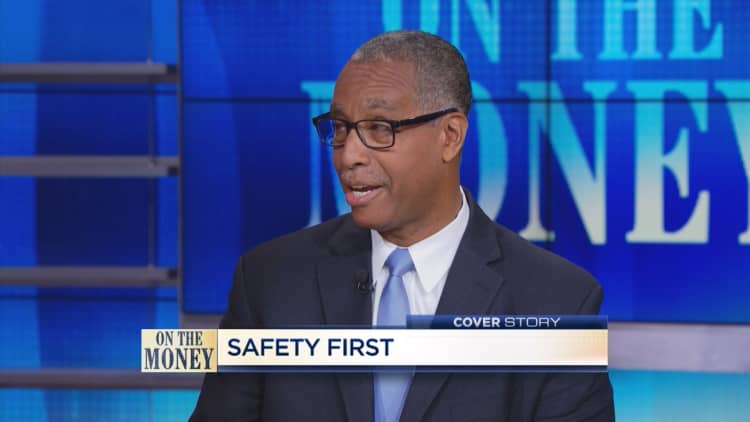
If you are planning on traveling this Independence Day holiday you're going to have plenty of company.
That is because AAA projects a record breaking 44.2 million people will travel 50 miles or more between June 30 and July 4—a whopping 1.25 million more than last year and the most ever measured by AAA's projections. Another 3.2 million will use some other mode of transit this weekend, including trains, buses and cruise ships.
There are numerous reasons why travelers are opting to hit the road for the holiday, according to Robert Sinclair, media manager for AAA Northeast, converging to form the perfect storm of crowded roads.
Sinclair told CNBC's On The Money that "the economy is good, people have more money in their pockets, salaries are up, household net worth is up, disposable income is up, airfares are down, car rental rates are down, and AAA 2-Diamond hotels are also a bit lower," than a year ago.
The most popular method of travel measured by the organization was driving, which made up 85 percent of those traveling, an estimated 37.5 million people. That figure was up 2.9 percent from last year.
Meanwhile, 3.4 million people are expected to take to the skies this holiday weekend, up 4.6 percent from 2016, the AAA noted. According to industry group Airlines for America, airlines have added 123,000 seats per day, just to keep up with the demand.
Flyers are being spurred by broadly cheaper flights. AAA's Leisure Travel Index shows average fares for the top 40 domestic airline routes dropped 10 percent from last year, even as hotel costs were roughly the same as the last year. Meanwhile, car rentals are 14 percent less from 2016.
Thank you, oil markets
Meanwhile, travelers also have plentiful world oil markets to thank for their travel plans. The plunging price of crude has sent gas prices even lower than last year, and the lowest they've been in 2017.
"This is in July, when we usually see gas prices peak sometime in June, July or August but they are exceptionally low which is very unusual, and people are taking advantage of it," Sinclair added.
However, it's not all smooth sailing on the roads. AAA expects to rescue more than 300,000 stranded motorists over the weekend. They say flat tires, dead batteries and lockouts are the primary reasons drivers call for help.
Sinclair stressed that it's dangerous to be stuck on the side of the road. "About one tow truck driver every six days is killed helping somebody by the side of the road," he told CNBC.
Currently all 50 states have a "Move Over" law that requires drivers approaching stationary emergency vehicles displaying flashing lights to slow down and if possible, shift to another lane.
On the Money airs on CNBC Saturdays at 5:30 am ET, or check listings for air times in local markets.


